What are Food Sterilizers
Food Sterilizers are essential equipment in the food processing industry, designed to effectively eliminate or deactivate microorganisms that can cause spoilage or foodborne illnesses. They serve a vital role in ensuring that food products are safe for consumption and have an extended shelf life. This technology is utilized by a broad spectrum of businesses, including small-scale food shops, large manufacturing plants, restaurants, and even for home use applications.
The principle behind food sterilization involves the application of heat, chemicals, irradiation, or filtration to destroy bacteria, viruses, and other pathogens. Heat is the most common method, using either steam under pressure (as in autoclaves), hot water, or direct dry heat. The process is carefully controlled to ensure that all potentially harmful organisms are eradicated without compromising the nutritional value and sensory qualities of the food.
The efficiency of a sterilizer depends on various factors such as the type and number of microorganisms present, the composition and physical state of the food, and the environment in which sterilization takes place. Industries must opt for appropriate sterilization methods based on their specific requirements to maintain food quality and comply with safety regulations.
Types of Food Sterilizers
In the realm of food sterilization, multiple technologies cater to different types of food products and packaging methods. Understanding each type is crucial for selecting the right equipment for your business needs.
Autoclave Sterilizers: Operating under high pressure and temperature, autoclave sterilizers are commonly used for sterilizing canned goods, glass jars, and various types of packaging. They use steam to ensure thorough penetration and elimination of microbes in complex product shapes.
Retort Sterilizers: Similar to autoclaves but typically used on a larger scale, retort sterilizers process packaged foods by subjecting them to pressurized steam or hot water. They're versatile in handling diverse packaging forms from metal cans to flexible pouches.
Ultraviolet (UV) Sterilizers: UV sterilization employs short-wavelength ultraviolet light to break down microorganisms' DNA, rendering them inactive. This method is often used for surface sterilization or treating clear liquids like water or juices.
Microwave Sterilizers: Using electromagnetic radiation, microwave sterilizers generate heat internally within the food products. They are effective for foods with high moisture content and offer a quick and energy-efficient option.
High-Pressure Processing (HPP) Systems: Instead of heat, HPP uses intense pressure to inactivate pathogens while preserving the freshness and nutrients of the food. It's an innovative technique suitable for ready-to-eat meats, juices, and other perishables.
How to choose Food Sterilizers
When selecting a food sterilizer for your business, it's essential to consider several factors to ensure you acquire equipment that meets your needs effectively. Start by assessing the types of food products you will be processing—different foods may require different sterilization techniques. Additionally, consider the packaging materials you use; some sterilizers are better suited for certain packaging than others.
Evaluate the scale of your operation and the expected throughput—industrial-scale autoclaves or retorts may be necessary for larger operations, while smaller businesses might benefit from compact UV or microwave systems. The efficiency and safety features of a machine are also important; look for options that offer high productivity and a high safety level. Energy efficiency is another critical aspect to consider as it directly impacts long-term operational costs.
Make sure to check if after-sales services such as technical support or maintenance are available with your purchase. Reliable customer service can significantly reduce downtime if issues arise with your equipment. Lastly, verify whether machinery test reports are provided to ensure compliance with industry standards.
Best Food Sterilizers on Alibaba.com
For businesses seeking reliable and efficient solutions in food safety management, Alibaba.com is a premier marketplace offering a wide selection of wholesale food sterilizers tailored to various industry needs. The platform connects buyers with an extensive network of suppliers globally, providing access to state-of-the-art sterilization technology without geographical limitations. From compact UV systems suitable for small enterprises to large-scale retorts for mass production facilities—Alibaba.com caters to all scales of business operations.
The versatility of options on Alibaba.com ensures that you can find machinery that aligns with your specific industry requirements—be it canned meat processing or beverage pasteurization. Furthermore, Alibaba.com facilitates secure transactions with services like Trade Assurance, ensuring peace of mind throughout your purchasing journey. With a commitment to aiding small and medium-sized businesses in their growth ambitions through online trade solutions, Alibaba.com stands out as a trustworthy platform where businesses can equip themselves with advanced food sterilization technologies necessary for maintaining high standards of food hygiene and quality control.
Common FAQs for Food Sterilizers
What types of food can be sterilized using food sterilizers?
Food sterilizers are versatile and can be used to sterilize a wide range of food products including canned foods, meats, beverages, dairy products, and ready-to-eat meals among others.
Can food sterilizers handle different packaging materials?
Yes, food sterilizers can accommodate various packaging materials such as metal cans, glass jars, plastic pouches, and bottles. It is important to choose the right type of sterilizer for the specific packaging used in your operations.
How do food sterilizers ensure the safety and quality of food?
Food sterilizers use controlled processes that apply heat, pressure, or other methods to destroy harmful microorganisms without significantly affecting the nutritional value or taste of the food.
What are the core components I should consider when selecting a food sterilizer?
Key components to consider include the PLC (programmable logic controller), pressure vessel, motor, pump, and any critical bearings or gears that ensure reliable operation of the sterilizer.
Are there food sterilizers available for small-scale businesses?
Yes, there are compact and efficient sterilizer models suitable for small-scale operations and even for home use, which can be found on platforms like Alibaba.com.
How does high-pressure processing (HPP) differ from traditional heat-based sterilization methods?
HPP uses intense pressure to inactivate pathogens without applying heat, preserving the freshness and nutrients of food while still extending shelf life and ensuring safety.
Is it possible to find eco-friendly food sterilizers?
Yes, some food sterilizers are designed with eco-friendliness in mind and may use less energy or water than traditional models. Look for features like 'Energy save' or 'Eco-friendly' when making your selection.
Can I find a food sterilizer that is easy to operate?
Many modern food sterilizers come with user-friendly interfaces and touch control functions that make them easy to operate, even for those with limited technical expertise.
What kind of after-sales support is available for food sterilizers?
After-sales services vary by supplier but may include video technical support, online support, and engineers available to service machinery overseas. It's important to confirm the type of support offered before purchasing.
Are machinery test reports important when buying a food sterilizer?
Yes, machinery test reports provide verification that the equipment has been tested for compliance with industry standards and can be an important factor in ensuring quality and reliability.
What is the typical voltage requirement for food sterilizers?
Food sterilizers commonly operate on industrial power supplies such as 380V or 220V. Always check the voltage specifications to ensure compatibility with your local power supply.
What should I consider regarding local service locations when purchasing a food sterilizer?
Consider suppliers that provide local service in your area to ensure you have access to prompt maintenance and repair services if needed. This can help minimize downtime in case of equipment issues.
How do I know if a food sterilizer is suitable for my industry?
Assess whether the machine's features align with your application needs by considering its key selling points like high productivity, safety level, service life, and versatility for different industries such as restaurants or manufacturing plants.









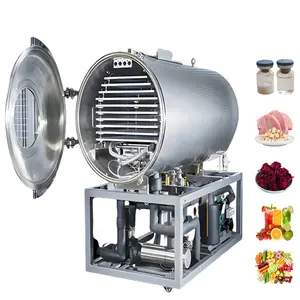

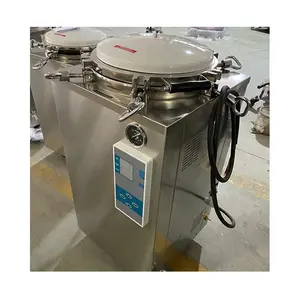
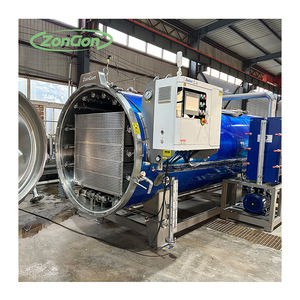




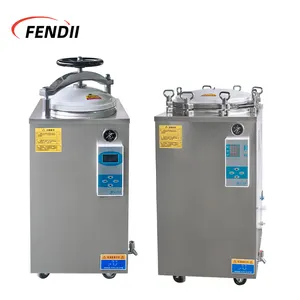



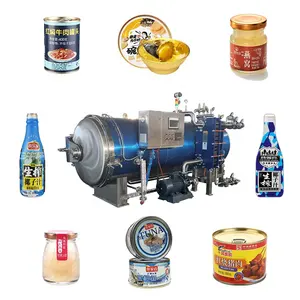
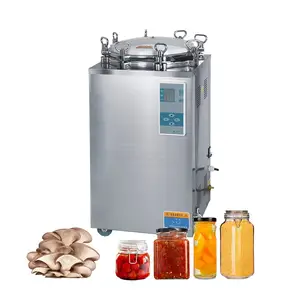


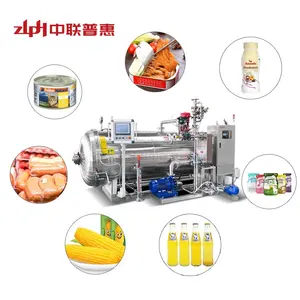
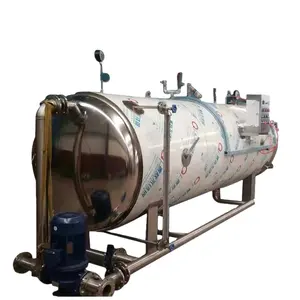


















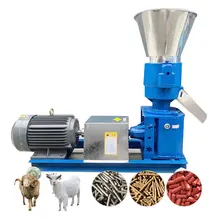

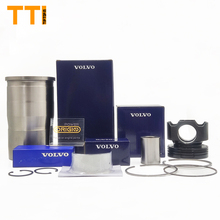
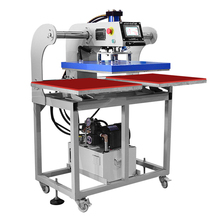
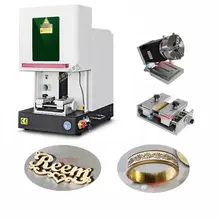



























 浙公网安备 33010002000092号
浙公网安备 33010002000092号 浙B2-20120091-4
浙B2-20120091-4